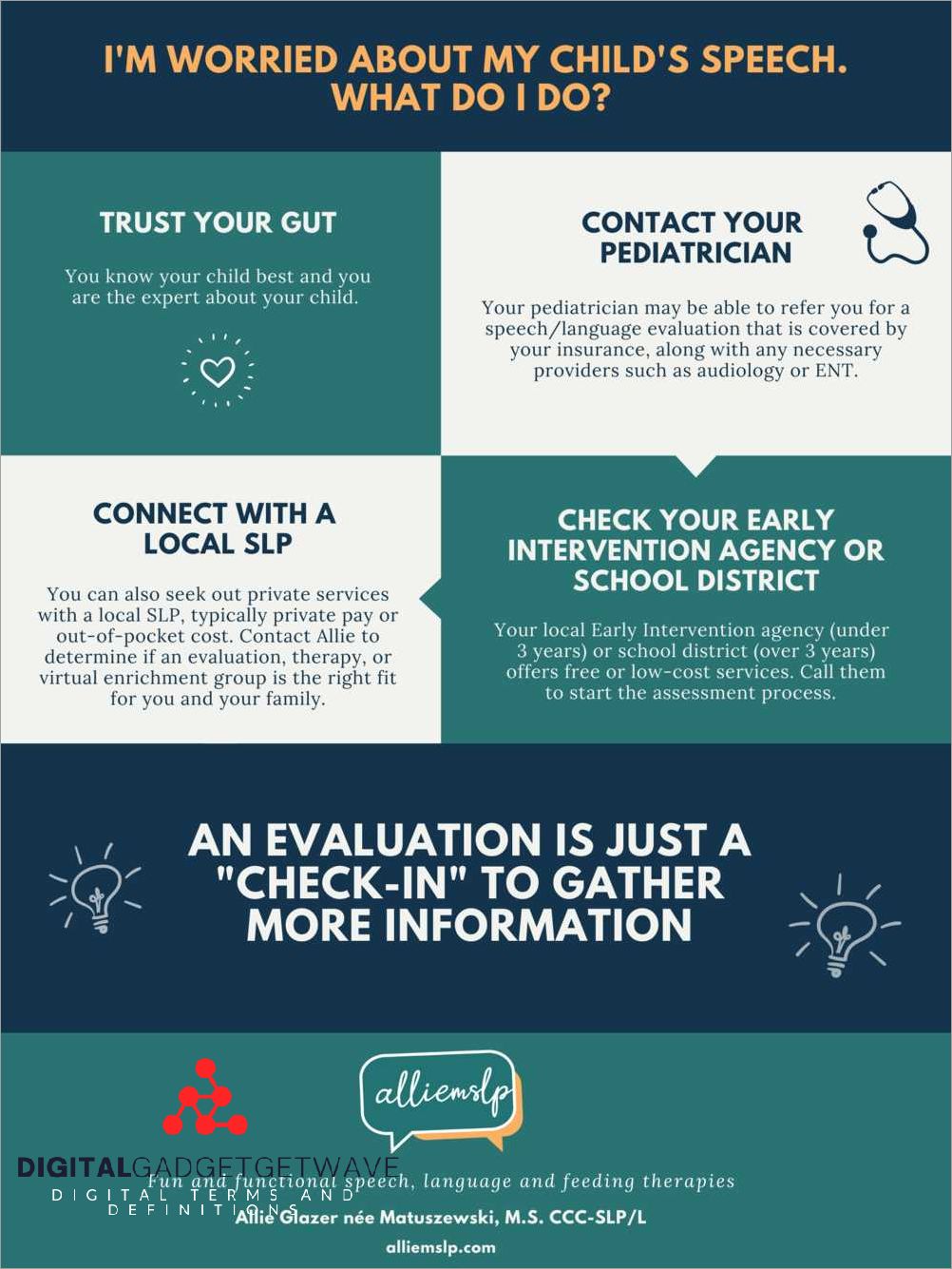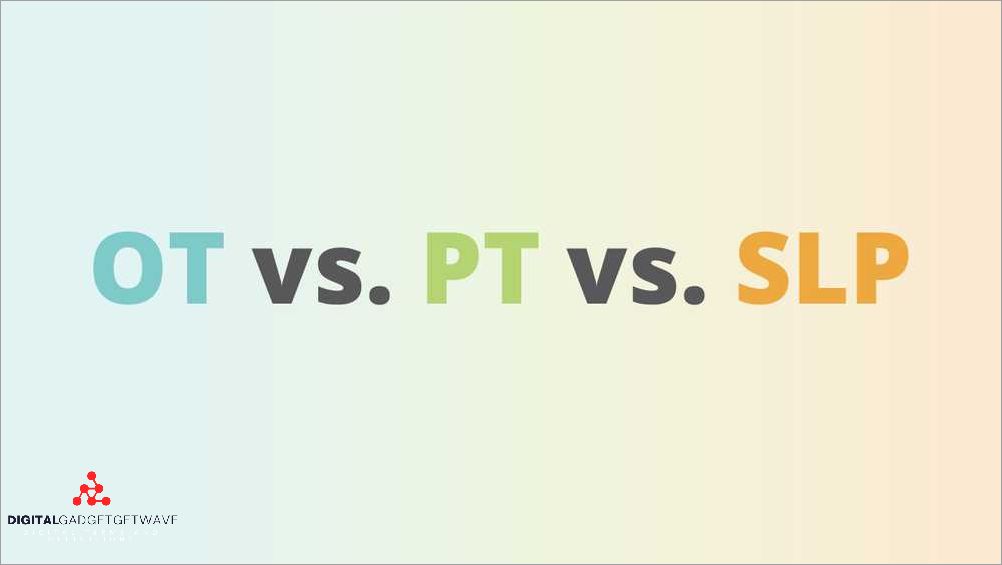
SLP is an abbreviation that is commonly used in various fields and industries. The term SLP is a short notation or symbol for a longer phrase or name. It is an initialism that represents multiple words or a phrase. Understanding the significance of SLP is crucial for anyone who encounters it in their profession or daily life.
The explanation of SLP can vary depending on the context in which it is used. In some cases, SLP might stand for “Speech-Language Pathologist,” a profession that focuses on the evaluation and treatment of individuals with communication disorders. In other instances, SLP could refer to “Service Level Agreement,” which defines the level of service that is expected between a provider and a client. Therefore, it is essential to consider the specific signification of SLP in each situation.
When SLP is used as an acronym, it stands for “Simultaneous Localization and Mapping,” a technology commonly used in robotics and autonomous systems. This expansion of SLP involves the interpretation and representation of the surrounding environment, enabling devices to navigate and map their surroundings effectively.
Overall, the meaning of SLP can vary significantly depending on the field or industry in which it is used. Understanding the definition and connotation of SLP in a given context is crucial for proper communication and clarity.
Contents
- 1 Understanding SLP: An Overview
- 2 SLP in Practice
- 3 Exploring SLP Education and Career
- 4 FAQ about topic “What Does SLP Stand For? Discover the Meaning of SLP”
- 5 What is the meaning of SLP?
- 6 What kind of education is required to become an SLP?
- 7 What type of patients do SLPs work with?
- 8 What are some common speech and language disorders that SLPs treat?
- 9 What is the role of an SLP in a school setting?
Understanding SLP: An Overview

In the world of acronyms and initialisms, SLP has a significant signification. It stands for Speech-Language Pathology, which is the expansion of the term SLP.
SLP is an abbreviation used to represent the field of Speech-Language Pathology, a specialized branch of healthcare that focuses on the diagnosis, treatment, and management of communication disorders. SLP professionals, also known as speech-language pathologists, work with individuals of all ages, from infants to the elderly, to improve their communication skills.
The abbreviation of SLP is often used in medical and educational settings, as well as in research and academic literature. It is a convenient notation that quickly conveys the meaning of Speech-Language Pathology. Different countries may have slightly different interpretations of the SLP abbreviation, but the underlying concept remains the same.
When someone refers to SLP, they are referring to the field of Speech-Language Pathology and the professionals who work within it. SLP encompasses a wide range of communication disorders, including speech sound disorders, language disorders, fluency disorders, and voice disorders.
Overall, SLP is a symbol of expertise in communication disorders and a dedication to helping individuals improve their communication skills. With its specific representation, SLP allows for easy recognition and understanding within the healthcare and educational communities.
Defining SLP
SLP stands for Speech-Language Pathology, which is a field that focuses on the evaluation, diagnosis, and treatment of communication disorders. The term “SLP” is an abbreviation that represents the full name of the profession. This acronym is commonly used in the medical and educational fields to refer to professionals who work in this area.
The meaning of SLP extends beyond its simple definition as an abbreviation. It carries a connotation of expertise, knowledge, and specialized skills in the field of communication disorders. SLPs are trained professionals who employ various strategies and techniques to help individuals improve their speech and language abilities.
The representation of SLP as an abbreviation serves as a clarification for those who may not be familiar with the term. It provides an initialism that allows for easy recognition and interpretation within the field. This expansion of the acronym provides a sense of identity and significance to the profession.
Through the use of SLP as an abbreviation, the field of Speech-Language Pathology is given a specific notation that highlights its importance and impact on individuals with communication disorders. It signifies the dedication and commitment of SLPs in helping individuals overcome their challenges and improve their overall quality of life.
In summary, SLP is an abbreviation that represents the field of Speech-Language Pathology. Its meaning goes beyond a simple definition or explanation, as it carries a sense of expertise and specialized knowledge. Through its representation as an abbreviation, SLP provides clarity, interpretation, and significance to the profession of Speech-Language Pathology.
Importance of SLP
SLP stands for Speech-Language Pathology, which is a field that plays a vital role in the expansion and explanation of various communication disorders. This symbol of SLP holds great meaning in the domain of speech and language therapy. It has a positive connotation as it signifies the process of providing clarification and elucidation to individuals with speech and language difficulties.
The acronym SLP is more commonly used in North America where it serves as a signification of the profession. In other parts of the world, the term Speech-Language Pathology may be preferred over the initialism and abbreviation SLP.
SLP is not just a simple notation or interpretation of a profession; it holds a deep significance in the lives of individuals with communication disorders. It is a field dedicated to the definition and sense of empowerment, as it helps people overcome their speech and language difficulties, thereby allowing them to reach their full potential in communication.
The importance of SLP can be seen through the positive impact it has on individuals’ lives. It allows them to improve their communication skills, increase their confidence, and enhance their quality of life. SLP professionals play a crucial role in providing evaluation, diagnosis, and treatment to individuals of all ages, from children with language delays to adults with communication disorders resulting from stroke or other medical conditions.
Overall, SLP is an essential field that deserves recognition for its contribution to society. Through the efforts of speech-language pathologists, individuals with communication disorders can navigate their world more effectively and achieve their communication goals.
Common Misconceptions

When it comes to the acronym SLP, there are several common misconceptions regarding its expansion, significance, and meaning. One of the most prevalent misunderstandings is that SLP stands for “Sign Language Professional.” While it is true that sign language plays a crucial role in the field of speech-language pathology, SLP actually stands for “Speech-Language Pathologist.”
Another misconception is that SLP is simply an abbreviation or a symbol used to represent the profession. However, SLP is an acronym that holds a specific definition and connotation within the field. It refers to the individuals who work as speech-language pathologists, providing evaluation, diagnosis, and treatment for individuals with speech, language, and swallowing disorders.
Furthermore, some people interpret SLP as an abbreviation for “Speech and Language Program,” assuming that it relates to a specific program or curriculum. However, the acronym SLP does not represent a particular program but rather the profession as a whole. SLPs may work in various settings, including schools, hospitals, clinics, and private practice.
In summary, it is important to clarify the true meaning and usage of the acronym SLP. Rather than a simple abbreviation or notation, SLP represents the profession of speech-language pathology and the dedicated individuals who provide crucial services to improve communication and swallowing abilities in individuals of all ages.
SLP in Practice
Speech-Language Pathology (SLP) is a field that involves the study and treatment of communication disorders. In practice, SLP professionals work with individuals who have difficulty in various aspects of speech, language, and swallowing. This can include disorders such as articulation problems, language delays, stuttering, voice disorders, and cognitive-communication disorders.
SLP professionals use a variety of techniques and strategies to assess and treat individuals with communication disorders. They may employ different signification and evaluation tools to determine the root causes of the communication difficulties. Through the use of various tests, assessments, and observations, SLP professionals can develop an understanding of the specific challenges that an individual may be facing.
Once the evaluation is complete, SLP professionals work with their clients to develop personalized treatment plans. These plans may involve therapy sessions to improve speech production, language comprehension, and social communication skills. SLP professionals may also provide support and strategies for individuals experiencing swallowing difficulties, helping them to improve their ability to eat and drink safely.
The role of an SLP professional extends beyond direct therapy sessions. They may collaborate with other healthcare professionals, educators, and family members to provide comprehensive care and support. By working together and sharing information, SLP professionals can ensure that individuals with communication disorders receive the appropriate support and intervention in various settings, including schools, hospitals, and rehabilitation centers.
It is important to note that the terms “SLP” and “Speech-Language Pathology” are often used interchangeably. SLP is an abbreviation or initialism for Speech-Language Pathology, and the two terms have the same representation and connotation. SLP professionals play a crucial role in helping individuals overcome communication challenges and improve their quality of life.
SLP Services
The term “SLP” is an initialism that stands for “Speech-Language Pathologist”. In the field of speech pathology, SLP services refer to the work and interventions provided by these professionals to assess, diagnose, and treat individuals with communication or swallowing disorders.
SLP services encompass a wide range of tasks and responsibilities. These may include evaluating and diagnosing speech and language disorders, creating individualized therapy plans, and providing treatment sessions to improve communication skills. They also address issues related to voice disorders, fluency disorders, and cognitive-communication disorders.
The notation “SLP” is an abbreviation commonly used to represent the profession and its practitioners. It is a recognized symbol within the field and carries a specific meaning and significance to those familiar with speech pathology.
For those unfamiliar with the term, an explanation or elucidation may be needed. In simple terms, SLP refers to the specialized healthcare professional who works with individuals of all ages to diagnose and treat various speech and language disorders. SLP services exist to help individuals improve their ability to express themselves and communicate effectively with others.
The abbreviation “SLP” is often used interchangeably with the term “speech therapist” or “speech-language therapist”. However, it is important to note that the scope of SLP services extends beyond just speech therapy. Speech-language pathologists also work with individuals who have difficulties with language comprehension, social communication, and swallowing disorders.
In summary, SLP services involve the assessment, diagnosis, and treatment of individuals with speech and language disorders. The abbreviation “SLP” serves as a convenient and widely recognized shorthand notation for speech-language pathologist. Understanding the definition and connotation of this acronym is essential in recognizing the important role SLPs play in improving communication and swallowing abilities.
SLP Techniques
SLP (Speech-Language Pathology) techniques refer to various methods and strategies used by speech-language pathologists to assess and treat communication disorders. These techniques help individuals improve their speech, language, and swallowing abilities.
The SLP symbol stands for Speech-Language Pathology, which is the field dedicated to helping individuals overcome communication challenges. SLP techniques involve the explanation and expansion of language skills, the interpretation of speech sounds, and the representation of communication through different modalities.
In SLP, connotation plays a crucial role in understanding the underlying meaning of words and phrases. SLP techniques involve the clarification and elucidation of the connotation of words to improve language comprehension and expression.
One of the primary SLP techniques is the use of abbreviations and acronyms. SLP professionals often use various initialisms and notations to represent specific terms and concepts in a concise manner. These abbreviations help in quick understanding and facilitate effective communication within the field.
Another important aspect of SLP techniques is the significance of context in communication. SLP professionals focus on helping individuals understand and apply the appropriate meaning and signification of words and phrases based on the surrounding context.
SLP techniques also involve the use of visual aids, such as charts, diagrams, and pictures, to support language learning and skill development. These visual representations assist individuals in grasping and retaining information more effectively.
Overall, SLP techniques encompass a range of strategies and approaches aimed at improving communication skills and enhancing overall quality of life. These techniques provide individuals with the tools and support they need to overcome communication barriers and achieve successful communication.
SLP Professionals
SLP stands for Speech-Language Pathologist, which is an initialism representing professionals in the field of speech-language pathology. These professionals specialize in diagnosing and treating communication disorders, including speech, language, voice, and swallowing disorders.
In more technical terms, the SLP initialism can be broken down as follows:
- Definition: The meaning or concept behind the term SLP refers to professionals who work in the field of speech-language pathology.
- Expansion: The expansion of SLP is Speech-Language Pathologist, which represents the specific role and expertise of these professionals.
- Explanation: The term SLP is a representation or notation used to identify individuals who have the knowledge and skills to diagnose and treat communication disorders.
- Signification: The symbol or abbreviation SLP has a significant meaning in the field of speech-language pathology as it represents a specialized profession dedicated to improving communication abilities.
- Elucidation: The abbreviation SLP requires clarification as it may not be familiar to everyone, but it is commonly used within the speech-language pathology community.
Overall, SLP is an acronym used to refer to speech-language pathologists, who play a vital role in helping individuals with communication disorders improve their speech, language, and swallowing abilities.
Exploring SLP Education and Career
SLP stands for Speech-Language Pathology, a field of study and profession that focuses on the evaluation, diagnosis, and treatment of communication disorders. SLPs work with individuals of all ages, from infants to seniors, who have difficulties with speech, language, swallowing, and cognition.
Speech-language pathologists undergo a rigorous educational process to become certified professionals in the field. They typically obtain a master’s degree in speech-language pathology from an accredited program. This comprehensive training equips SLPs with the knowledge and skills to assess and provide intervention for various communication disorders.
Within the realm of SLP education, students learn about the anatomy and physiology of the speech and hearing system, as well as the principles of communication and language development. They also study assessment and intervention techniques for specific disorders, such as stuttering, voice disorders, and language delays.
In terms of career opportunities, SLPs can work in a variety of settings, including schools, hospitals, rehabilitation centers, private practices, and research institutions. They collaborate with interdisciplinary teams to develop individualized treatment plans and help individuals improve their communication abilities.
The scope of SLP practice extends beyond speech and language. SLPs also address swallowing disorders, cognitive-communication impairments, and assistive technology needs. They play a crucial role in improving quality of life and enhancing overall communication skills for individuals with these challenges.
Considering the significance of communication in daily life, the work of SLPs has a profound impact on individuals and communities. Their expertise is essential in helping people overcome barriers and achieve their full potential in the areas of speech, language, and overall communication.
SLP Education Requirements

SLP stands for Speech-Language Pathologist, which is a healthcare professional specializing in the evaluation and treatment of speech and language disorders. To become an SLP, one must meet certain education requirements.
The education requirements for becoming an SLP typically include earning a master’s degree in speech-language pathology from an accredited program. This program provides students with the necessary knowledge and skills to assess and treat individuals with communication disorders.
In addition to completing a master’s degree, aspiring SLPs must also complete a supervised clinical fellowship, which involves working under the supervision of a licensed SLP to gain hands-on experience in diagnosing and treating communication disorders.
Once the educational requirements have been met, individuals can apply for licensure in their respective state. Licensure ensures that SLPs have met the necessary qualifications and standards to practice in their field.
In summary, the term “SLP education requirements” refers to the specific educational steps and qualifications that individuals must complete in order to become a licensed Speech-Language Pathologist. These requirements include earning a master’s degree in speech-language pathology, completing a supervised clinical fellowship, and obtaining state licensure.
SLP Career Outlook

The career outlook for speech-language pathologists (SLPs) is promising, as the demand for their expertise continues to grow. SLPs play a vital role in helping individuals with communication disorders regain or improve their ability to communicate effectively.
The meaning of a career as an SLP goes beyond simply treating speech and language disorders. SLPs also evaluate, diagnose, and provide therapy for individuals with swallowing disorders, cognitive communication disorders, and voice disorders. Their work has a significant impact on the lives of their clients, as effective communication is essential for social interaction, education, and overall quality of life.
The symbol of the SLP career is a representation of compassion, patience, and dedication. SLPs work closely with individuals of all ages, from infants to the elderly, tailoring their treatment approaches to meet the unique needs of each client. Their goal is to help individuals overcome their communication challenges and achieve their full potential.
The connotation of being an SLP is that it is a highly specialized field that requires extensive education and training. SLPs must complete a master’s degree program in speech-language pathology and obtain a license to practice. They also often pursue additional certifications to further expand their knowledge and skills.
The notation of being an SLP is the use of various assessment tools, therapy techniques, and technology to assess and treat communication disorders. SLPs utilize their expertise to develop individualized treatment plans for their clients, incorporating strategies such as speech exercises, language therapy, and augmentative and alternative communication systems.
The significance of the SLP career lies in the positive impact it has on society as a whole. By improving communication skills and addressing communication disorders, SLPs help individuals lead more fulfilling lives and actively participate in their communities. Their work also contributes to the overall well-being of the individuals they serve.
The explanation of the SLP career involves understanding the complex nature of communication disorders and the various factors that can contribute to them. SLPs must be knowledgeable in areas such as anatomy and physiology of the speech and hearing mechanisms, linguistics, and psychology. This expertise allows them to accurately assess and diagnose communication disorders and develop appropriate treatment plans.
The interpretation of being an SLP is that it requires constant learning and staying up-to-date with advancements in the field. SLPs participate in continuing education and professional development activities to expand their knowledge and ensure they are providing the most effective and evidence-based treatment to their clients.
The expansion of the SLP career is evident in the growing need for SLPs in various settings, including schools, hospitals, rehabilitation centers, and private practices. As the population continues to age and awareness of communication disorders increases, the demand for SLP services is expected to continue to rise.
The sense of fulfillment in being an SLP comes from witnessing the progress and success of their clients. Seeing individuals overcome communication challenges, regain their confidence, and achieve their communication goals is incredibly rewarding for SLPs.
In summary, the SLP career is an abbreviation for speech-language pathologist, which entails evaluating, diagnosing, and providing therapy for individuals with communication disorders. SLPs play a significant role in improving the communication skills and overall quality of life of their clients, requiring compassion, extensive education, and expertise in various treatment approaches and technologies.
Advancing in the SLP Field
In the field of Speech-Language Pathology (SLP), it is important to grasp the acronym of SLP as it represents the significance and definition of this profession. SLP stands for Speech-Language Pathology, which is the study and treatment of communication and swallowing disorders. This representation is crucial in understanding the core focus of the field.
Advancing in the SLP field requires a clear understanding of the expansion and explanation behind the acronym SLP. Speech-Language Pathology involves evaluating, diagnosing, and treating individuals with various communication and swallowing difficulties. Therefore, professionals in this field play a key role in helping people improve their communication skills and enhance their quality of life.
Furthermore, understanding the connotation and notation of SLP is essential in interpreting its significance. SLP professionals work with individuals of all ages, from infants to the elderly, providing therapy and intervention for speech and language disorders. They also address issues related to cognitive-communication, voice, fluency, and swallowing disorders.
To clarify, the initialism SLP is not to be confused with other similar abbreviations. While SLP refers specifically to Speech-Language Pathology, other related terms such as SLT (Speech and Language Therapy) or SLP-A (Speech-Language Pathology Assistant) may have slightly different meanings or scopes of practice.
In summary, advancing in the SLP field requires a comprehensive understanding of the meaning and scope of SLP as an abbreviation. SLP professionals work diligently to address communication and swallowing disorders, helping individuals improve their abilities and overall quality of life.
FAQ about topic “What Does SLP Stand For? Discover the Meaning of SLP”
What is the meaning of SLP?
SLP stands for Speech-Language Pathologist. It is a healthcare professional who specializes in diagnosing and treating communication disorders, including speech and language difficulties.
What kind of education is required to become an SLP?
To become an SLP, one must usually complete a master’s degree in Speech-Language Pathology. In some countries, a bachelor’s degree may be sufficient, but a master’s degree is typically the minimum requirement in most places.
What type of patients do SLPs work with?
SLPs work with patients of all ages, from infants to the elderly. They may work with children who have language delays or disorders, adults who have suffered from strokes or other neurological conditions, or individuals with voice disorders or speech difficulties.
What are some common speech and language disorders that SLPs treat?
SLPs treat a wide range of speech and language disorders, including articulation disorders, language disorders, stuttering, voice disorders, aphasia, and apraxia of speech. They also work with individuals who have difficulty swallowing or feeding.
What is the role of an SLP in a school setting?
In a school setting, an SLP may work with students who have speech and language disorders that affect their ability to communicate effectively in the classroom. They may provide individual or group therapy, collaborate with teachers and other professionals, and develop and implement intervention plans to help students improve their communication skills.


